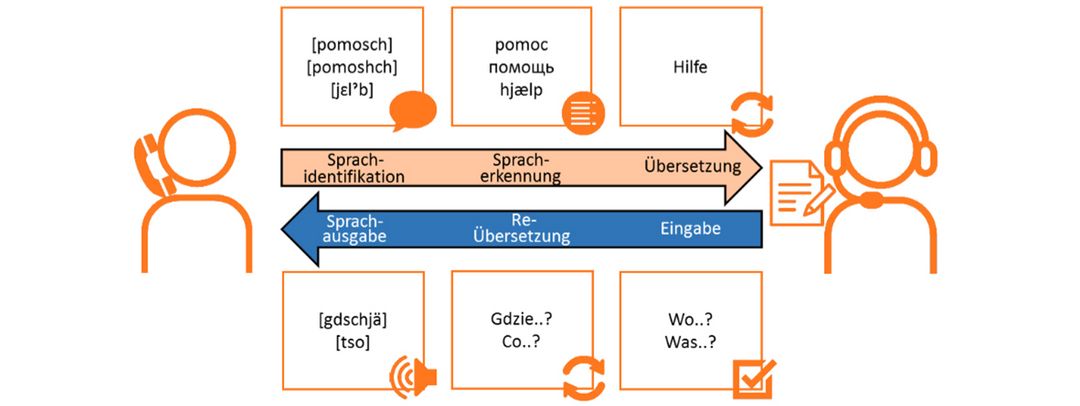NotAs is designed to enable dispatchers in fire and rescue control centers to accept emergency calls in a language they are not familiar with and to process them in a targeted manner with the help of intelligent dialog functions. The possibly time-consuming search for a third person to act as a translator is no longer necessary, and the danger of misunderstandings is reduced. The digital emergency call assistant will combine the functionalities of automatic speech identification, speech recognition, and machine translation with a module for the AI-supported interpretation of emergency call contents. AI procedures are to recognize important information independently and the dispatchers are to be presented in a pre-filled deployment form. Calls in the German language should also be able to be processed faster thanks to this function.
The project's overall goal is to provide the best and fastest possible help to every person at any time in a multinational and multiethnic European society. The introduction of a Europe-wide standardized emergency number was the first important step towards simplifying this process, e.g., for persons traveling. The NotAs project also aims to minimize any language barriers that may exist.
DFKI is contributing its expertise in language processing and machine learning techniques, especially for machine translation, semantic interpretation, and dialog modeling. The team around project leader Dr. Ivana Kruijff-Korbayová from the DFKI research department Multilinguality and Language Technology evaluates the applicability of existing technologies for speech recognition and machine translation to emergency calls in the three project languages (German, English, Polish) and tests improvement possibilities through domain-specific model extensions and context-related translation. In addition, the scientists are investigating methods for the semantic interpretation of the contents and their assignment to the typical "W-questions". Special emphasis is placed on which representations and models for machine learning are well suited for this purpose, how domain knowledge can be introduced, and how learning efficiency can be improved. Furthermore, the implementation of the questions and answers of the dispatcher will be tested.
Two associated partners with great expertise in the field of receiving and handling emergency calls from people with different language backgrounds support the consortium: The German Maritime Search and Rescue Service (DGzRS) and the Fire Department of the City of Munich.
The NotAs research project is funded by the Federal Ministry of Education and Research (BMBF) as part of the funding measure "Anwender-Innovativ: Forschung für die zivile Sicherheit II." The measure is part of the Federal Government's "Research for Civil Security" program. The project duration is 24 months.
Further information on the funded projects is available at:
www.sifo.de

